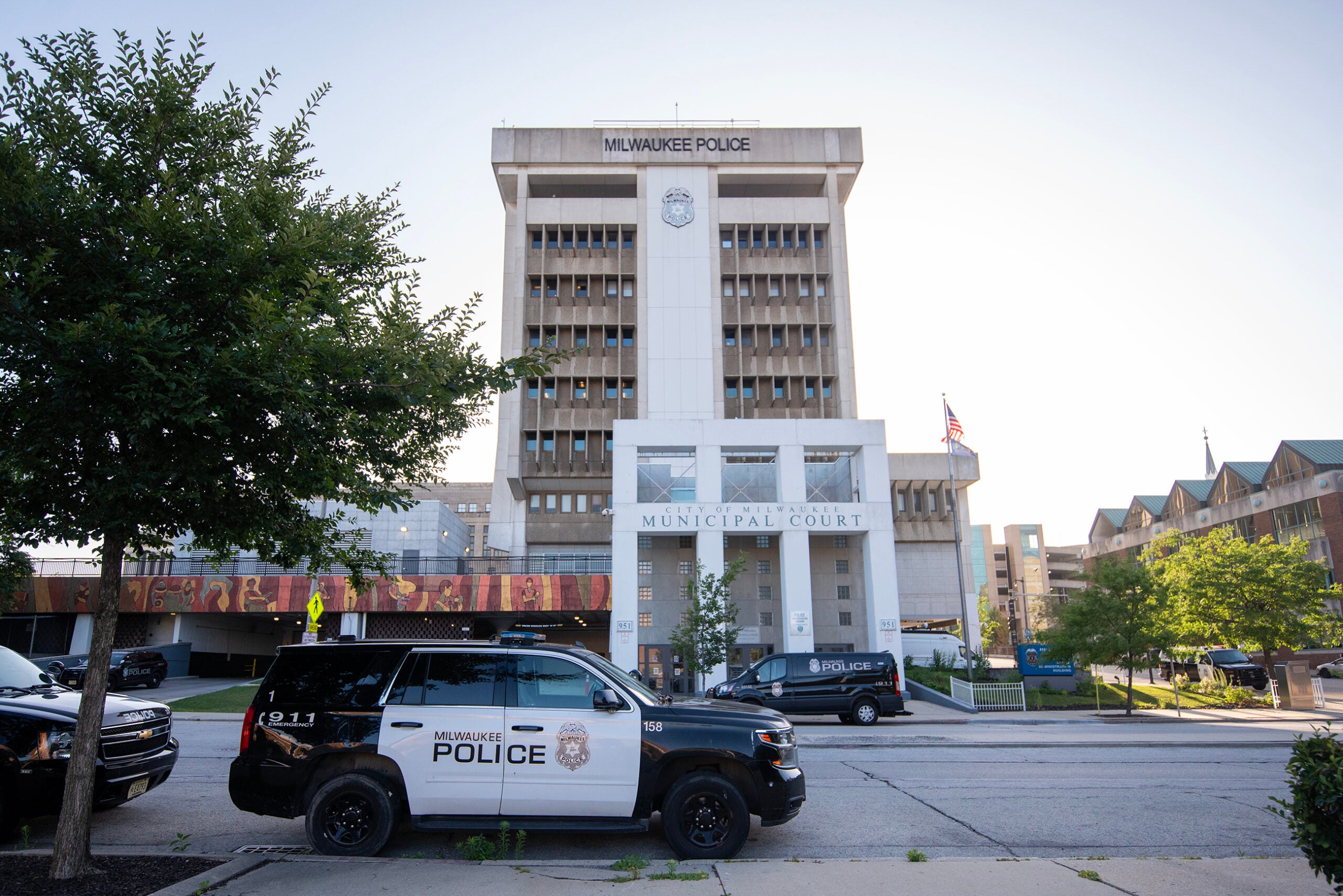A vote on a sweeping measure to help Milwaukee and Milwaukee County avert a looming fiscal cliff will soon be in the hands of local officials.
Under a bipartisan plan to overhaul local government funding — which passed both houses of the state Legislature Wednesday — the city of Milwaukee could levy a 2 percent sales tax while the county could raise its sales tax by 0.4 percent. The Milwaukee Common Council and Milwaukee County Board of Supervisors would both need to pass that increase through a two-thirds vote. It’s not yet clear when that vote will take place, as Gov. Tony Evers, who helped negotiate the package, has not yet signed the bill.
However, it could be months before the sales tax is implemented if it’s passed, as state law says the Department of Revenue needs a copy of the sales tax ordinance at least 120 days before it will be in effect. It can also only go into effect on Jan.1, April 1, July 1 or Oct. 1 of any given year, according to state law.
News with a little more humanity
WPR’s “Wisconsin Today” newsletter keeps you connected to the state you love without feeling overwhelmed. No paywall. No agenda. No corporate filter.
The Milwaukee Common Council could vote on any sales tax legislation at two scheduled meetings in July before a planned recess in August. But no official timeline for a vote has been publicly announced.
If the city sales tax — which would go toward retiring pension debt — isn’t approved, severe service cuts could take place. That could lead to the closure of several libraries and fire stations and the loss of hundreds of police officers and firefighter positions.
“There isn’t even a remotely close … ability to generate the type of revenue that would be generated by a potential 2 percent sales tax,” said Rob Henken, president of Wisconsin Policy Forum.
Some Milwaukee alders have protested several provisions included in the shared revenue plan — which gives a boost of cash to municipalities across the state. And at least one alder has asaid he plans to vote against a sales tax increase.
But Henken said the tax — which would bring an estimated $193.6 million a year to the city — would help Milwaukee address a “gaping hole” in its budget when federal pandemic relief funds expire at the end of 2024. Estimates have shown there could be up to a $150 million budget deficit in Milwaukee starting in 2025.
“One can only imagine the type of position cuts and therefore service cuts that would be required to bridge such a gap,” Henken said.
Milwaukee Alder Marina Dimitrijevic plans to vote yes for the sales tax.
“There’s a big difference in just not being able to pay our bills, and having the city survive, and having the city actually thrive,” Dimitrijevic said last week.
Milwaukee Mayor Cavalier Johnson is also expected to sign the sales tax hike, if passed by the council.
“I ask the Milwaukee Common Council to join me in support of the two-percent city sales tax. Without the sales tax, we have no option to prevent draconian cuts to basic city services,” Johnson said in a statement Wednesday.
Ross Milton is an assistant professor of public affairs at the University of Wisconsin-Madison. He said despite the need for funding, he understands if city leaders are concerned about the sales tax hike because of its impact on low-income residents.
“Low income residents tend to spend a larger portion of their income. They save less because they don’t have that much money to save,” Milton said.
Milwaukee County’s sales tax would increase by 0.4 percent, up from 0.375 percent in earlier versions of the bill. The increase would need approval from 12 of the 18 Milwaukee County supervisors. Milwaukee County Supervisor Shawn Rolland said he plans to vote in favor of the increase.
“I think that Milwaukee County is headed towards a fiscal cliff, which will impact our ability to deliver services that people need and to create amenities that people want to be able to live here,” Rolland said.
Rolland said the county has already cut over $300 million dollars from its budget in the last decade. A Milwaukee County comptroller financial forecast estimates a structural deficit of $109.7 million in the county budget in 2028.
“There’s not any more fat to cut. There’s just bone and people will see it, and they’ll feel it if we cannot close this structural deceit,” Rolland said.
Milwaukee County Executive David Crowley is also expected to sign a sales tax increase.
“This is a generational opportunity to secure our financial future and continue offering the services that keep residents healthy and safe,” Crowley said in a statement. “As deliberations on the sole issue of additional revenue turn to local legislative bodies, we look forward to productive conversations with county leaders and encouraging decision-making that aligns with community needs.”
Wisconsin Public Radio, © Copyright 2026, Board of Regents of the University of Wisconsin System and Wisconsin Educational Communications Board.







